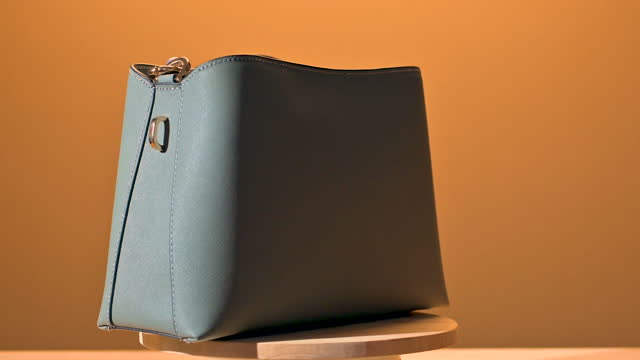The Hermès Birkin bag is highly sought-after by collectors and fashionistas all over the world as a representation of exclusivity and luxury. Nevertheless, a class action lawsuit that has shocked the fashion industry has recently eclipsed the Birkin bag’s iconic fame. This article explores the details of the Hermès Birkin class action lawsuit, including its beginnings, the charges made, and any possible repercussions for the upscale company and its devoted clientele. We hope to provide a thorough knowledge of the debate and its effects on the high fashion industry by analyzing the salient features of this judicial battle.
The Hermès Birkin Bag’s history
When the Hermès Birkin bag was first released in the 1980s, it soon came to represent wealth and social standing. The bag, which bears the name Jane Birkin after the singer and actress, is well-known for its lavish price tags, superior materials, and fine craftsmanship. Handcrafted by expert artisans, each Birkin bag can cost upwards of $300,000 depending on the model. The bag is extremely sought-after among the wealthy and style-conscious due to its limited availability and protracted waiting lists, which further add to its exclusivity.
The History of Class Action Lawsuits
A group of consumers filed a class action complaint against Hermès, claiming the luxury brand had unfairly treated them and used misleading tactics in the sale and distribution of the Birkin bag. The plaintiffs claimed that Hermès artificially created scarcity by manipulating the bags’ supply and availability, which increased demand and pricing. They maintained that this technique broke consumer protection regulations in addition to being immoral.
Concerns over the distribution of Birkin bags to celebrities and preferred customers, which allegedly led to unfair benefits and favoritism, were also brought up in the case. While some consumers claimed to have been on waiting lists for years, others with connections or influence appeared to be able to get the bags more quickly. The core of the class action complaint was these claims of market manipulation and favoritism.
Principal Accusations and Legal Defenses
In the class action case, the plaintiffs made a number of significant accusations against Hermès. Because the Birkin bag’s scarcity was manufactured rather than a result of strong demand, they argued that the company’s actions amounted to deceptive advertising. They contended that Hermès deceived buyers into thinking the bags were unique and hard to find, which allowed them to charge outrageous amounts.
The claim that Hermès discriminated against some customers by treating them better than others was another noteworthy accusation. The plaintiffs claimed that the values of equality and fairness in the marketplace were compromised by this bias. They claimed that regardless of social standing or connections, every client ought to have an equal chance to buy the bags.
Claims of breach of contract were also raised in the legal proceedings; several buyers claimed that after signing contracts with Hermès to buy Birkin bags, they were left waiting an interminable amount of time with no clarity or communication from the company. The plaintiffs’ complaints were exacerbated by this ambiguity and apparent betrayal of confidence.
Hermès’s Reaction and Protection
Hermès has strongly refuted the claims made in the class action complaint and insisted that its business procedures are open and honest. According to the luxury company, each Birkin bag is produced with extreme care and attention to detail, which accounts for its limited availability. Hermès claims that the bags’ inherent scarcity is a result of the time and effort that go into producing them, rather than something that is intentionally manufactured.
Hermès has also defended its client distribution procedures, saying that it cherishes its long-term connections with clients and strives to give its devoted following outstanding service. The company has made it clear that it doesn’t use favoritism and instead works to accommodate the varied demands and preferences of its clientele.
ramifications for the apparel sector
The fashion sector is affected significantly by the Hermès Birkin class action case, especially with regard to consumer rights and brand openness. Other luxury businesses may be forced to review their distribution and sales strategies if the plaintiffs are successful in establishing the validity of their claims. The case also emphasizes how customers’ rising awareness of their rights and expectations is driving a desire for fairness and openness in the premium market.
A wider discussion over the morality of scarcity marketing and the significance of exclusivity in luxury branding has also been spurred by the lawsuit. Although scarcity might increase a product’s desirability, it also raises concerns about equity and accessibility. The verdict in this case may have an impact on how premium brands handle these difficulties going forward.
In summary
In conclusion, important questions about consumer rights, brand policies, and the morality of exclusivity in the luxury market have been raised by the Hermès Birkin class action lawsuit. Hermès is under pressure to defend its policies and reputation in light of the accusations of artificial scarcity, favoritism, and contract violations that have cast a shadow on the iconic stature of the Birkin bag. The fashion industry and customers are closely monitoring the events of the legal struggle, eager to see how they may affect luxury branding and consumer protection. Whatever the verdict, the case serves as a reminder of how crucial honesty, justice, and moral behavior are to preserving consumers’ faith and allegiance in the cutthroat world of high fashion.




